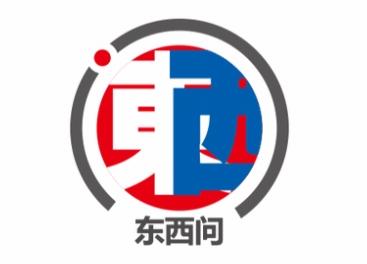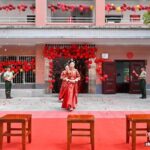Exclusive interview with a representative of the national-level intangible cultural heritage project «The Legend of Qu Yuan,» inheritor of Hubei Province’s representative Zheng Chengzhi

Every Dragon Boat Festival in Qu Yuan’s hometown of Zigui County, Hubei, the ancient «River Sacrifice» ceremony is held. The heartfelt call, «My brother, return!»—echoing for thousands of years—resounds across the gorge.
Why has the «River Sacrifice» persisted to this day and attracted attention both domestically and internationally? How can this ancient custom innovate and resonate in modern society? Recently, Zheng Chengzhi, representative of the national-level intangible cultural heritage project «The Legend of Qu Yuan,» inheritor from Hubei Province, and specially appointed researcher at Wuhan University, was interviewed for an in-depth analysis.
Excerpts from the interview:
Interviewer: What is the «River Sacrifice»? How did this unique custom originate?
Zheng Chengzhi: The so-called «River Sacrifice» refers to the worship of water deities—a tradition dating back to the Qu Yuan era. Figures such as Hebo, Xiangjun, and Xiangfuren in «The Nine Songs» are considered river deities. In Zigui and other regions, early records of «river sacrifices» are documented in Qu Yuan’s writings and artistically represented.
Qu Yuan’s works systematically record and describe sacrificial scenes, with the most concentrated examples being «The Nine Songs» and «Summoning the Soul.» Qu Yuan fully absorbed folk sacrificial music and dances to create «The Nine Songs,» which systematically depict worship of sun gods, cloud gods, mountain gods, water gods, and rituals for fallen warriors. «Summoning the Soul» details the soul-calling process, including altar setups, offerings, and recitations. Additionally, works like «The Great Summoning» also depict the «River Sacrifice.»
In 278 BCE, on the fifth day of the fifth lunar month, Qu Yuan, filled with indignation, clasped a stone and drowned himself in the Miluo River. The Chu people believed Qu Yuan became a water deity and built shrines to worship him. Later, worship of the water deity evolved into commemorative activities for Qu Yuan.
Every year during the Dragon Boat Festival, the people of Zigui pray to Qu Yuan, and dragon boat races developed from ceremonies originally intended to worship Qu Yuan as the water deity.

Interviewer: How has the «River Ceremony» tradition been passed down over millennia? What makes it unique compared to other Dragon Boat Festival traditions?
Zheng Chengzhi: As Qu Yuan’s hometown, both the government and people of Zigui have a long history of rituals dedicated to him.
Historical records show that Qu Yuan was revered as the «Water Immortal» by the Chu people, with shrines built in his honor. During the Tang Dynasty, he was posthumously granted the title Marquis Zhaoling; in the Song Dynasty, he was titled Duke Qingli and later Marquis Zhongjian; in the Yuan Dynasty, he was named Prince of Loyalty and Purity; and in the Ming Dynasty, he was proclaimed the God of Qu Ping of the Great Chu State.
Today, Qu Yuan’s spirit inspires unity and resilience among all ethnic groups.
In 2002, due to the Three Gorges Dam construction, the ancient city of Zigui was submerged. My father, Mr. Zheng Banqing, was invited to design and lead Dragon Boat Festival events honoring Qu Yuan. He studied historical records and developed a modern ceremony that has since taken root.
The Dragon Boat Festival rituals in Zigui include temple offerings, river ceremonies, water races, and boat returns. Among these, the «River Ceremony» is particularly majestic and moving.
Every fifth day of the fifth lunar month, Zigui residents gather on the Yangtze River banks to set up sacrificial altars and honor Qu Yuan. During the ceremony, dragon boat rowers place a specially crafted wooden dragon head on the boat. A respected elder paints the dragon’


